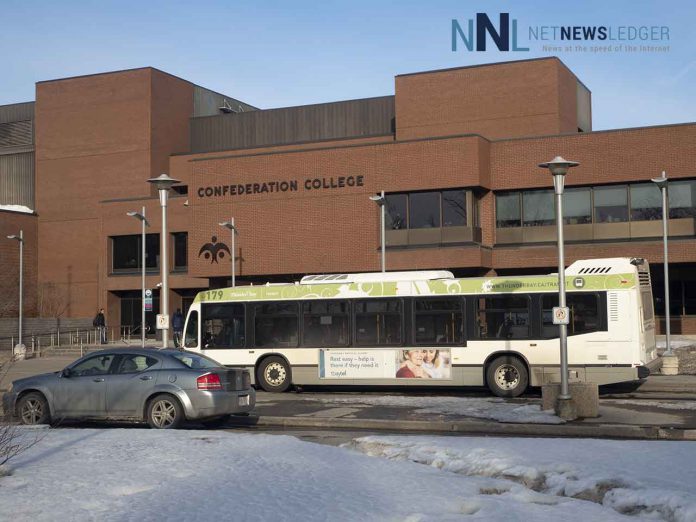THUNDER BAY, ON – October 25, 2024—Confederation College is proactively responding to significant changes announced by Immigration, Refugees, and Citizenship Canada (IRCC) earlier this year. The new rules have led to a notable decline in international student enrollment. For Confederation College, it has meant a 10% reduction in international student study permits for 2025 and more restrictive criteria for the Post-Graduate Work Permit (PGWP) system.
Michelle Salo, President of Confederation College, hosted an information session for faculty and staff on October 23, to ensure they had the most up-to-date information regarding these changes and their implications.
“These enrollment declines represent more than just statistics; they signal the beginning of a very challenging era for our College and all colleges across Canada,” Salo said. “Without immediate action, we could see international enrollment at the College decline by up to 69%, with some colleges estimating even larger losses. These policy changes have irreparably harmed Canada’s reputation as a destination for international students to study. The financial and operational consequences could be profound starting in the 2025/2026 fiscal year.”
The impact of these changes is already being felt, with international student enrollment for Fall 2024 dropping significantly. New first-semester international student enrollment has decreased by 39.2% compared to Fall 2023. This trend is not isolated to Confederation College; the entire Ontario college system is experiencing a 46% decline, with some colleges seeing drops as high as 79%.
Aaron Skillen, Vice President – Academic, emphasized the broader implications: “This situation affects not just Confederation College, but the entire college system in Ontario. It’s important to note that these policy changes impact colleges more severely than universities. For example, engineering technology, early childhood education, culinary, and several other health programs are not covered in the list of eligible college programs for the PGWP despite clear labour market shortages in these fields, especially in the North. We’re very concerned about what this will mean for our region.”
The financial impact of these enrollment declines is expected to be severe, directly threatening the sustainability of critical programs such as engineering, early childhood education, dental hygiene, and business—fields essential to Northwestern Ontario’s workforce. The deficits incurred will necessitate difficult choices, with immediate financial shortfalls anticipated in the 2025/2026 fiscal year. Due to a decline in the region’s college-age population, Confederation College has responsibly brought in international students to help fill the shortages across Northwestern Ontario, especially in these critical areas.
Confederation College is actively advocating for the restoration of critical programs to the PGWP-eligible list, programs that are critical to the region’s labour market needs. The College is also engaging with provincial authorities to seek funding solutions that reflect its unique position in Northwestern Ontario. With a hiring pause in effect, the College is carefully reviewing Spring 2025 program offerings to ensure sustainability while continuing to meet the needs of students and the region.
Salo added, “we echo the plea from Colleges Ontario in asking the federal government to slow down the hasty rollout of these changes to ensure adequate consideration of the needs of everyday Ontarians, and of employers, across the whole province. We are pushing for meaningful dialogue with the province to ensure these policy shifts don’t put Ontarians at a disadvantage. Decisions must involve provincial input to address the needs of those who rely on the robust and adaptable workforce produced by colleges.”
While addressing these external challenges, Confederation College is strengthening its domestic recruitment efforts. The Fall Open House, on November 9, is a crucial opportunity to showcase the College’s value to prospective students.
Confederation College remains committed to adapting to this evolving landscape and ensuring that it continues to be a cornerstone of education and workforce development in Northwestern Ontario. Salo expressed confidence in the College’s resilience: “Our faculty and staff have an unwavering commitment and focus on students during difficult times, and I know they will continue to do that now.







